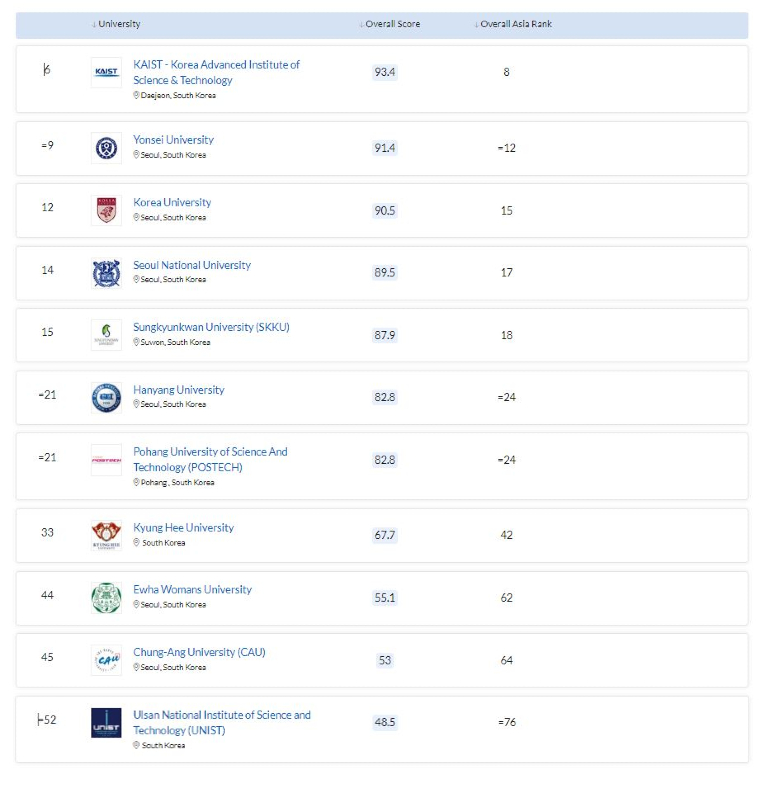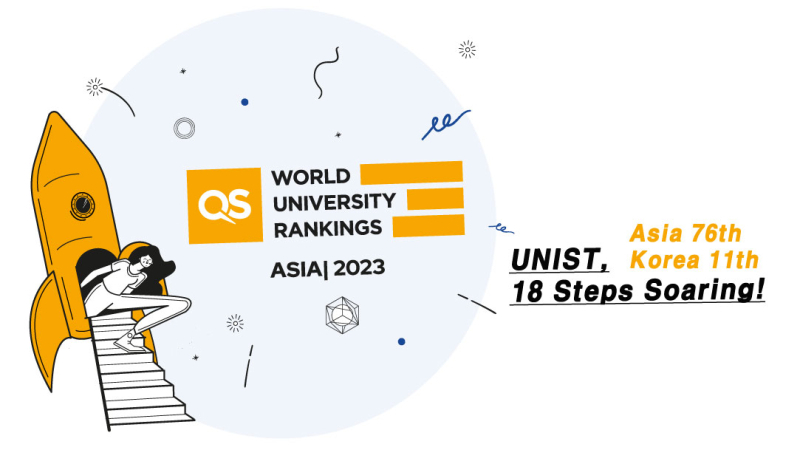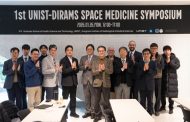UNIST continues to excel in the QS Asia University Rankings 2023, this year moving from 94th in Asia to 76th. This has led the university to win the QS Recognition for Improvement Award. Besides, in terms of Citation per Paper, UNIST ranked No. 1 in South Korea and No. 2 in Asia.
The latest results of QS Asia University Rankings 2023 have been announced on November 9, 2022. In the 2023 edition of the ranking, UNIST has made a climb of 18 spots from last year to be ranked 76th in Asia. The results also revealed that UNIST has seen a rise up the rankings for the second consecutive years. Indeed, UNIST entered the Top 100 for the first time in 2021, slightly risen to No. 94 in 2022, and then jumped 18 spots at once, this year.

Source: QS Asia University Rankings 2023
The 2023 edition of QS Asia University Rankings was the biggest to date, featuring 760 Asian universities, including UNIST. This year, UNIST earned a full score for Citation per Paper (100%), which indicates research excellence. UNIST, in terms of citations, ranked No. 1 in South Korea and No. 2 in Asia. Other indicators also showed an overall rise. UNIST showed high performance in Faculty Staff with PhD (99.1%), Faculty Student Ratio (92%), Papers per Faculty (80.9%), and International Faculty (81.6%).
Along with the announcement of the latest results of QS World University Rankings 2023, awards were also given in eight categories, including the top 10 universities. UNIST has won the QS Recognition of Improvement, which is bestowed to institutions for their excellence in higher education.
“To improve in a QS ranking means not only to improve against yourself, but to improve relative to the peers in the ranking.” says Drew MacFarlane, QS Ranking Manager. “This involves your reputation, your research, and your ability to attract and retain international students and staff. All of this takes time, and this certificate is in recognition of your efforts to achieve this for your students.”
Meanwhile, the QS Asia University Rankings highlights the top universities in Asia each year. The methodology used to create the ranking is similar to that used for the QS World University Rankings, but with some additional indicators and adapted weightings. The eleven indicators that determine the QS Asia University Ranking 2023 are: Academic reputation (30%), employer reputation (30%), faculty-student ratio (10%), international research network (10%), citation per paper (10%), papers per faculty (5%), staff with PhD (5%), proportion of international faculty (2.5%), proportion of international students (2.5%), proportion of inbound exchange students (2.5%), and proportion of outbound exchange students (2.5%).












